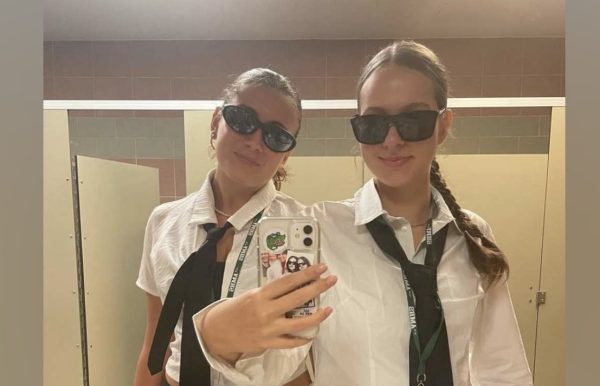Advice for AP Research to the Class of 2022
It is not as intense as it seems.
As the end of the school year slowly approaches, I am sure your AP Seminar teachers have given you an idea of what is to come for AP Research. However, I still want to give my advice as the Class of 2021 is the first Senior Class at Academic Magnet to truly experience this course fully. This article is not meant to scare or stress you out, but to give you an idea of what is to come.
- Picking a Research Topic/Question — The best advice I can give for picking a research topic is very basic: pick whatever is in your realm of interests. And this research topic could really be anything from a character analysis in a movie to studying brain waves through an EEG. Whatever your research topic is, just make sure it is something you are either passionate about or at least interested in. I promise this will make the work much less boring. You also have to make sure your research question is addressing a gap, which is basically something that has never been researched or has been barely studied. But the trick for this is to address a small and feasible gap, not to find a cure for cancer or anything. Also ensure that your research topic has a lot of sources that could support your question and the reason for you inquiry. The key word used here is to support, not prove. This is essential in order to have a strong Review of Literature, a very important part of you research paper.
- Finding Sources — As I mentioned before, sources are crucial to your paper in order to build a strong Review of Literature. Much like AP Seminar, I recommend using JSTOR, Academic OneFile by Gale, and other resources the school provides you. You want the sources you use to be credible in order for your research to be credible. I recommend you find some sources that are studies, so you can get an idea of what methodology you would do for your research. Many students, including myself, model their correlational studies and experimental design studies around sources they feel could support their research. This makes it much easier to collect and analyze your data in an orderly fashion.
- Feasibility—Keep in mind of the time crunch. Do not be overly ambitious with your topic. Do not try to cure cancer or something. You can save that for when you are pursuing a PhD or something. It is your senior year and you really do not want to pile on the work when you have college/scholarship applications, AP classes, all while trying to have fun. That with a combination of serious senior-itis is not ideal.
- Do not be too stressed—While you probably want to do well on this project, remember that you do not need to stress too much. Obviously it would be nice to pass with a 3, 4, or 5, but most colleges don’t even take the AP Capstone credit, and if they do it is usually AP Seminar. I am not trying to say you should purposely fail. I just think it is important that you know in the back of your mind that if you do not pass, it is not the end of the world. — This is not to deter you from trying your best:)
There are probably some other pieces of advice that I should give such as do not procrastinate. But the truth is, you probably will procrastinate a bit and me telling you not to will not really change that. There are some parts in that class where I did procrastinate. We are Academic Magnet students, it is what we do best. However, I hope the advice I gave will help you have an idea of what you would like to do for research. It is not as intense or intimidating as it seems.








